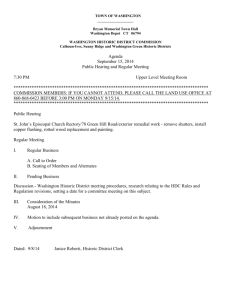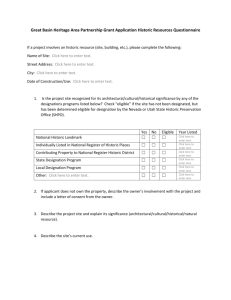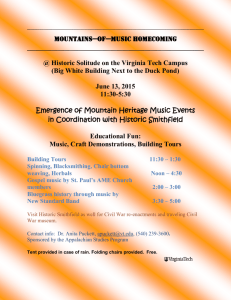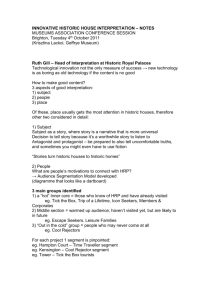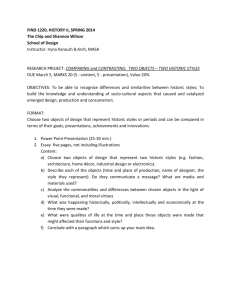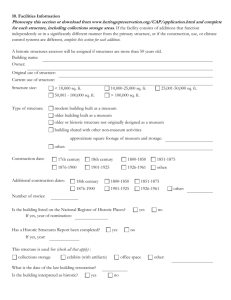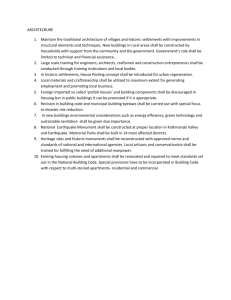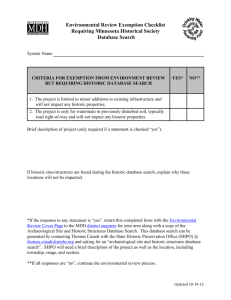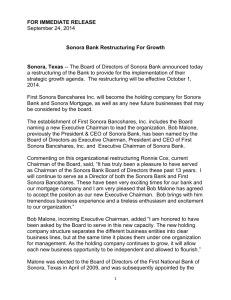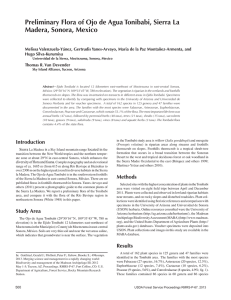designreviewguidelines
advertisement
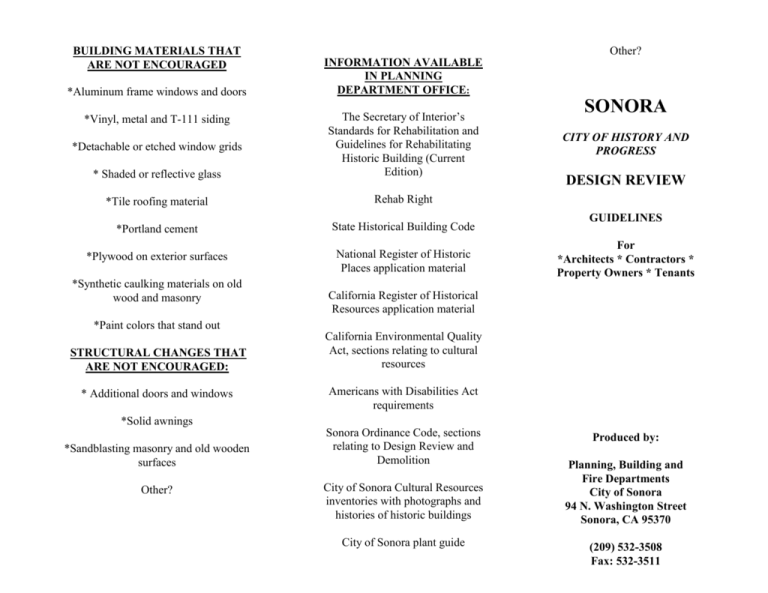
BUILDING MATERIALS THAT ARE NOT ENCOURAGED *Aluminum frame windows and doors Other? INFORMATION AVAILABLE IN PLANNING DEPARTMENT OFFICE: * Shaded or reflective glass The Secretary of Interior’s Standards for Rehabilitation and Guidelines for Rehabilitating Historic Building (Current Edition) *Tile roofing material Rehab Right *Portland cement State Historical Building Code *Plywood on exterior surfaces National Register of Historic Places application material *Vinyl, metal and T-111 siding *Detachable or etched window grids *Synthetic caulking materials on old wood and masonry SONORA CITY OF HISTORY AND PROGRESS DESIGN REVIEW GUIDELINES For *Architects * Contractors * Property Owners * Tenants California Register of Historical Resources application material *Paint colors that stand out STRUCTURAL CHANGES THAT ARE NOT ENCOURAGED: * Additional doors and windows California Environmental Quality Act, sections relating to cultural resources Americans with Disabilities Act requirements *Solid awnings *Sandblasting masonry and old wooden surfaces Other? Sonora Ordinance Code, sections relating to Design Review and Demolition City of Sonora Cultural Resources inventories with photographs and histories of historic buildings City of Sonora plant guide Produced by: Planning, Building and Fire Departments City of Sonora 94 N. Washington Street Sonora, CA 95370 (209) 532-3508 Fax: 532-3511 e-mail: edwyllie@sonoraca.com AN EASY HOW TO GUIDE TO PRESERVING SONORA’S ARCHITECTURAL HERITAGE GOALS: Guidelines that take into consideration economic and technical feasibility: in their own right shall be retained and preserved. *Perpetuate Sonora’s ties to the past (1) A property shall be used for its historic purpose or be placed in a new use that requires minimal change to the defining characteristics of the building and its site and environment. (2) The historic character of a property shall be retained and preserved. The removal of historic materials or alteration of features and spaces that characterize a property shall be avoided. *Preserve Sonora’s authentic architectural heritage *Retain Sonora’s charm for residents, visitors, commerce *Enhance Sonora’s appearance with well designed new construction and historically accurate modifications and compatible additions *Integrate previous landscaping with project and add old fashioned plant materials (3) PROCESS: Thumb nail sketch of how design review works and what channels it goes through. (4) Each property shall be recognized as a physical record of its time, place, and use. Changes that create a false sense of historical development, such as adding conjectural features or architectural elements from other buildings, shall not be undertaken. Most properties change over time; those changes that have acquired historic significance (5) Distinctive features, finishes, and construction techniques or examples of craftsmanship that characterize a historic property shall be preserved. (6) Deteriorated historic features shall be repaired rather than replaced. Where the severity of deterioration requires replacement of a distinctive feature, the new feature shall match the old in design, color, texture, and other visual qualities and, where possible, materials. Replacement of missing features shall be substantiated by documentary, physical, or pictorial evidence. (7) (8) Chemical or physical treatments, such as sandblasting, that cause damage to historic materials shall not be used. The surface cleaning of structures, if appropriate, shall be undertaken using the gentlest means possible. (9) Significant archeological resources affected by a project shall be protected and preserved. If such resources must be disturbed, mitigation measures shall be undertaken. (10) New additions, exterior alterations, or related new construction shall not destroy historic materials that characterize the property. The new work shall be differentiated from the old and shall be compatible with the massing, size, scale, and architectural features to protect the historic integrity of the property and its environment. (11) New additions and adjacent or related new construction shall be undertaken in such a manner that if removed in the future, the essential form and integrity of the historic property and its environment would be unimpaired. *Source: Secretary of Interior’s Preservation Assistance Division

